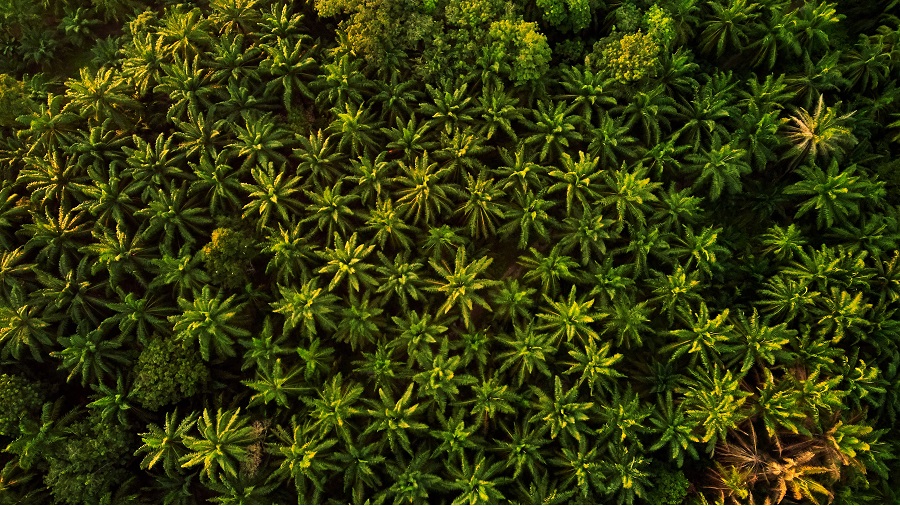‘GREENER AND HEALTHIER’ PALM OIL ALTERNATIVE IDENTIFIED BY SCIENTISTS IN SINGAPORE
A team of scientists at Nanyang Technological University (NTU) in Singapore have developed a way to extract plant-based oils from a type of common microalgae which could serve as a healthier and greener alternative to palm oil.
According to the research study published in the Journal of Applied Phycology, the oils produced from the microalgae are edible and have superior properties to those found in palm oil, and therefore make it a potential candidate for a more sustainable and nutritious alternative to other plant oils, such as palm.
Palm oil is currently the most widely-used plant oil on the planet – used in almost every packaged household product – from hundreds of food stuffs to cosmetics and hair and beauty care products, and more.
The study found that, compared to palm oil, the oil derived from the microalgae contains more polyunsaturated fatty acids, which can help reduce ‘bad’ cholesterol levels in blood and lower a person’s risk of heart disease and stroke. The microalgae-produced oil developed by the scientists in Singapore, in collaboration with scientists from the University of Malaya in Malaysia, is also said to contain fewer saturated fatty acids.
As well as offering a greener alternative to cultivating palm trees, this new technique for extracting oil from micro algae is also said to have the potential to help cut down on greenhouse gas emissions as well as food waste.
This is because, when produced on a big enough scale using natural sunlight, the micro algae quickly removes carbon dioxide from the atmosphere by converting it to biomass and oxygen via photosynthesis. As the microalgae grows, it changes carbon dioxide to biomass at relatively fast rates – faster than with many other plant crops.

Professor William Chen, Director of NTU’s Food Science and Technology (FST) Programme, and leader of the project. “Developing these plant-based oils from algae is yet another triumph for NTU Singapore, as we look to find successful ways to tackle problems in the agrifoodtech chain, especially those that have an adverse impact on the environment. Uncovering this as a potential human food source is an opportunity to lessen the impact the food supply chain has on our planet.”
In a separate study, the scientists at NTU’s Food Science and Technology programme have also developed a process to produce the key reaction ingredient needed to cultivate the microalgae oil, pyruvic acid. This is done by fermenting organic waste products, such as soybean residues and fruit peels, which would not only reduce production costs, but help cut down on food waste.
“We rely on one of nature’s key processes, fermentation, to convert organic matter into nutrient-rich solutions, which could be used to cultivate algae, which not only reduces our reliance on palm oil, but keeps carbon out of the atmosphere,” added Professor Chen.
The scientists will be working on optimising their extraction methods to improve yield and quality. The research team has received interest from several food and beverage partners and may look at the possibility of scaling up their operations and continuing their research into this development.
For more Asia-based news, click here
Join us at SIAL Paris as exhibitor Join us at SIAL Paris as visitor
